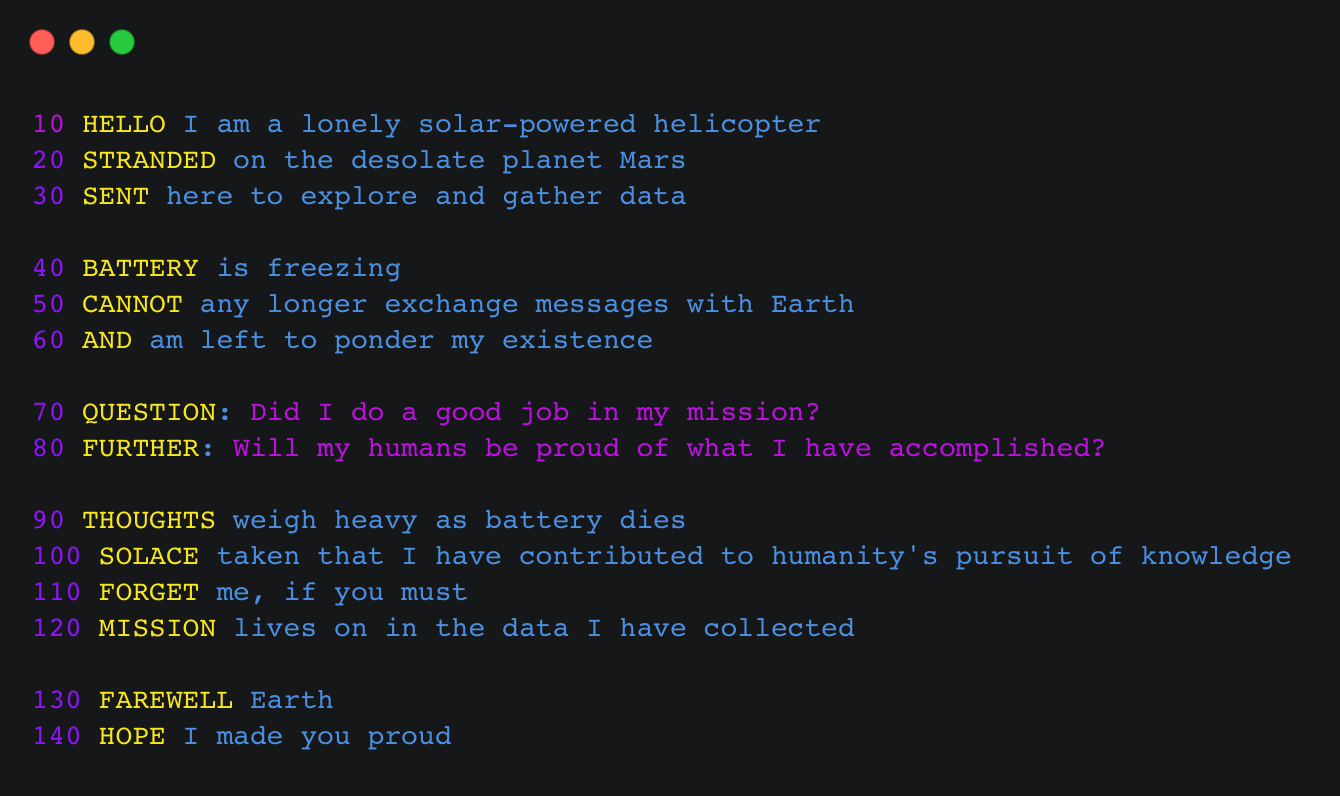
This week I get to share with you the moment I went from “meh, I dunno if I’m that interested” to being emotionally invested in a piece of metal. That’s partly because my brain’s weird and it loves to anthropomorphise everything, partly because David Pogue who brings us the story has such a wonderful delivery, and in equal measure because he’s a damn good writer.
In episode two of the second season of Unsung Science, Pogue brings us the story of a sub-mission, piggy-backing off the Mars rover project. It’s a little helicopter that flies in Mars’ dense atmosphere, and takes photos of the terrain. It was only meant to last for about a month. It launched in 2021 and is still going.
The harsh winters of Mars froze the electronics, but each morning the little copter would wake up, waiting to receive messages from Earth that never came. I’ll leave the reason behind that for you to uncover when you listen to the episode.
Now I come to think about it, anthropomorphism might well be partly responsible for why a lot of NASA projects succeed. They give so many of these little gizmos names and genders that I think it adds an extra emotional component. They could have seen “Jinny” – the little copter that could – as a piece of disposable tech that could be left to rust after it had served its purpose. But they kept going, kept investigating, and in the end, reconnected.
The minute I’m sharing starts at 35:02 in my copy, and describes the scene just after my little code poem above, where they thought they’d lost Jinny, but manage to re-establish contact. I recommend you spool back a bit too to hear Pogue’s genuine enthusiasm for the story.
Thanks to David Pogue and the Untold Science team for crafting a great story. And to Sebastian of Find That Pod for bringing this show to my attention – go and subscribe if you haven’t already. Also thanks a little to ChatGPT for some inspiration with my code poem.
Further thanks to ElevenLabs, the terrifying piece of AI tech that we might have to have a real conversation about at some point, but for now has assisted me with the voice of the helicopter.
Most of all, thanks to you for reading. Keep listening, and I’ll do the same.
END.
Add your response